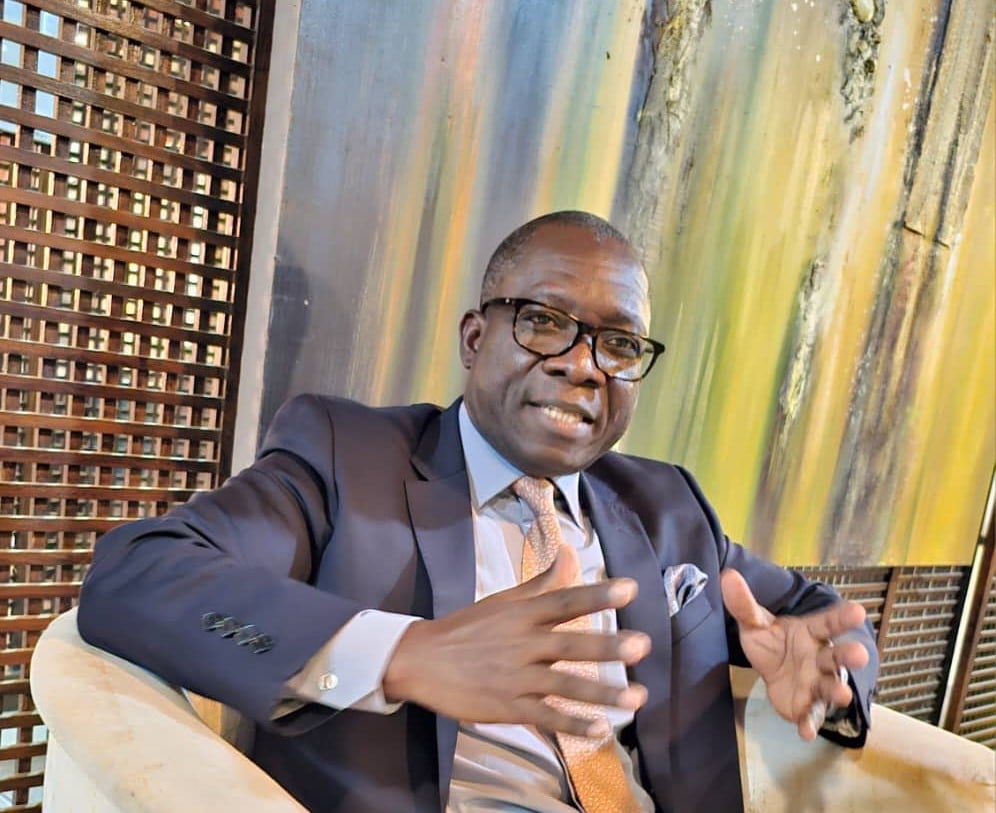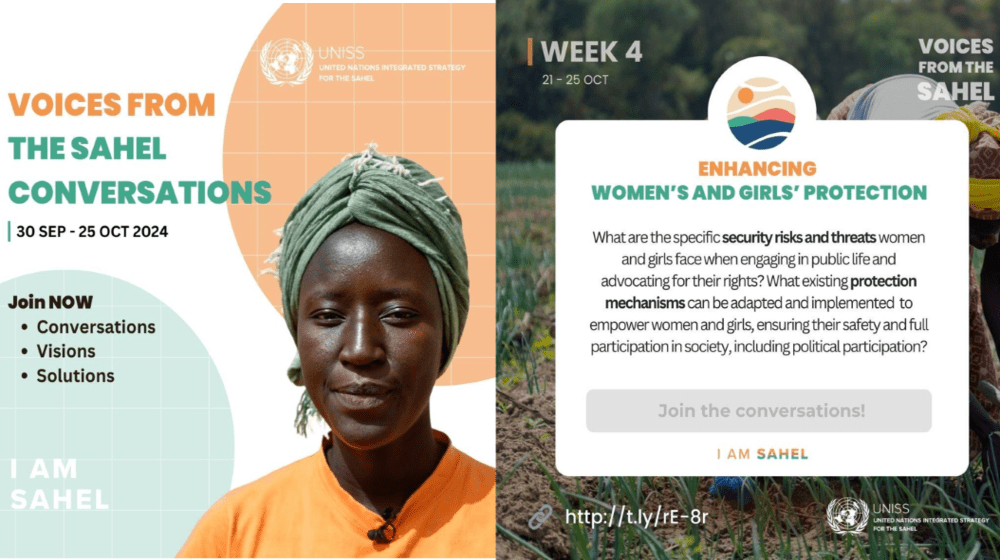Dear all, colleagues and partners, leaving in the Sahel, working in the Sahel, working for the Sahel,

Greetings from the West and Central Africa Regional Office of UNFPA, the United Nations Population Fund. I am honored to welcome you all to the 4th and last week of the conversations, visions and solutions for the “Voices from the Sahel”, that I will be co-moderating with my colleagues Abdouraouf Gnon-Konde, Director of the Regional Bureau of UNHCR for West and Central Africa, and M. Gilles Fagninou, Regional Director of UNICEF in West and Central Africa.
Together, we are proud “HeForShes” – men standing for the rights and choices of all women and girls. I hope we will be joined by many of you for this week’s discussion, focused on the critically important theme of Enhancing Women’s and Girls’ Protection,
At UNFPA, the United Nations sexual and reproductive health agency, our mission is to deliver a world where every pregnancy is wanted, every childbirth is safe and every young person's potential is fulfilled.
We promote gender equality and empower women, girls and young people to take control of their bodies and their futures. We work with partners in more than 150 countries to provide access to a wide range of sexual and reproductive health services. Our goal is ending unmet need for family planning, preventable maternal death, and gender-based violence and harmful practices including child marriage and female genital mutilation by 2030.
The Sahel is at the core of our work and priorities. Women and girls in the Sahel experience some of the highest rates of gender-based violence in the world, increased by the polycrisis that is tremendously impacting the region. Limited funding and prioritization are compounding an already dire situation.
At the same time, and as mentioned in all exchanges of these past three weeks, we are in awe about the resilience and strength of the Sahelian populations, including women and girls – leading organizations, fighting for their rights, demanding the end of harmful practices, running for office to drive change at the highest levels of the State. These are the powerful voices and forces of the Sahel that we know will have sustainable impact.
That very engagement brings its own sets of risks, as women’s rights activists and civil society actors face violence and backlash for their public engagement. This is the core of our topic of the week, and we hope you will take some time to share your experiences, your thoughts, your solutions, as we endeavor to prioritize women and girls’ leadership and protection.
Please make yourselves heard on this important topic.
In solidarity,
Sennen
Message from OSCDS, UNFPA, UNHCR, UNICEF Team
Dear All,
I hope this message finds you well.
On behalf of the United Nations Under-Secretary-General and Special Coordinator for Development in the Sahel,Abdoulaye Mar Dieye, We are pleased to announce the launch of the fourth and final week of the Voices from the Sahel consultation on SparkBlue. This week’s thematic focus is Enhancing Women’s and Girls’ Protection, and the guiding question is:
“What specific security risks and threats do women and girls face when engaging in public life and advocating for their rights? What existing protection mechanisms can be adapted and implemented to empower women and girls, ensuring their safety and full participation in society, including political participation?”
Women and girls in the Sahel face significant risks—from gender-based violence (GBV) to political exclusion, especially in the context of conflict and forced displacement. For UN agencies, it is essential that we continue to safeguard the rights and dignity of women and girls while continuing to engage men and boys as well as community and religious leaders to address the root causes of those challenges, as their safety is not just a human rights concern but a key factor in promoting inclusive development and sustainable peace in the region. We encourage you to share personal experiences—whether your own or those of friends and family—that highlight these issues. Your thoughts on how we can improve protection mechanisms are invaluable in shaping solutions. This is an opportunity to reflect on what safety looks like for women and girls in your communities and how we can collectively ensure their full participation in society.
We are honored to have Sennen Hounton, Director of the UNFPA Regional Office for West and Central Africa (WCARO), Abdouraouf Gnon-Konde, Director of the Regional Bureau of UNHCR for West and Central Africa, and M. Gilles Fagninou, Regional Director of UNICEF in West and Central Africa, join us to moderate this week’s session. They look forward to interacting with you, exchanging ideas, and exploring how we can work together to create safer environments for women and girls.
As we enter the final week of this consultation, we also welcome your reflections on previous discussions, as well as any final thoughts or words you wish to share with the ten participating UN leaders, their respective organizations, or the UN at large.
Thank you for your continued participation, and we look forward to your active engagement in this important conversation.
Best regards,
OSCDS, UNFPA, UNHCR, UNICEF Team


